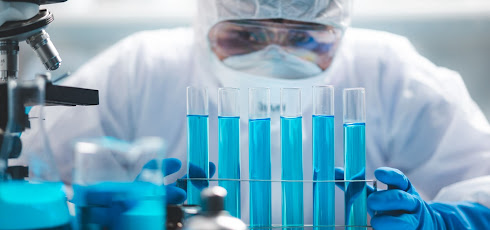Understanding the Importance of Water Treatment in Healthcare and Pharmaceuticals
Water Treatment in Healthcare and Pharmaceuticals
In the field of healthcare and pharmaceuticals, water treatment plays a pivotal role in ensuring the safety, efficacy, and compliance of various processes and products. Clean and pure water is vital for numerous applications, ranging from laboratory research to the production of life-saving medications. In this comprehensive article, we will explore the critical aspects of water treatment in the healthcare and pharmaceutical industries, delving into its significance, processes, and benefits.Water is an essential resource in healthcare and pharmaceutical settings, where it is utilized for various purposes, such as:
1. Laboratory Research
Laboratories conducting medical research require water of the highest quality to ensure accurate and reliable results. Contaminants present in untreated water can skew experimental outcomes, potentially compromising scientific studies and hindering medical advancements.2. Drug Manufacturing
The pharmaceutical industry relies heavily on water during drug manufacturing processes. Water is often used as a key ingredient in drug formulations or as a cleaning agent for equipment used in production. Any impurities in the water can lead to substandard medications, affecting patient health and safety.3. Sterilization and Cleaning
Water is commonly used for sterilization and cleaning purposes in healthcare facilities. From sanitizing medical instruments to maintaining a hygienic environment, water quality is vital to prevent infections and ensure patient well-being.The Water Treatment Process in Healthcare and Pharmaceuticals
To meet the stringent requirements of healthcare and pharmaceutical applications, water undergoes a rigorous treatment process to attain the desired level of purity. The primary stages of water treatment include:1. Filtration
The water treatment process begins with filtration, where various physical and chemical methods are employed to remove large particles, sediment, and impurities from the water. This step helps in reducing the overall contaminant load.2. Reverse Osmosis
Reverse osmosis is a crucial step in water treatment for healthcare and pharmaceutical applications. This process employs a semipermeable membrane to remove dissolved salts, heavy metals, and organic compounds, resulting in ultra-pure water suitable for critical processes.3. Deionization
Deionization, also known as ion exchange, is utilized to remove ions from water, ensuring a high level of electrical conductivity. This step further enhances the purity of the water, making it suitable for sensitive laboratory work and pharmaceutical production.4. UV Treatment
Ultraviolet (UV) treatment is a final step to disinfect the water and eliminate any remaining microorganisms. UV radiation effectively neutralizes bacteria, viruses, and other harmful pathogens, making the water safe for use in medical settings.Benefits of Effective Water Treatment in Healthcare and Pharmaceuticals
The implementation of robust water treatment processes offers several benefits to the healthcare and pharmaceutical sectors, including:1. Enhanced Product Quality
Water of superior quality ensures the production of medications that meet strict regulatory standards and exhibit consistent efficacy. This, in turn, enhances patient outcomes and safety.2. Compliance with Regulatory Standards
Healthcare and pharmaceutical industries are subject to stringent regulations to safeguard public health. By adhering to proper water treatment practices, companies can remain compliant with these standards and avoid potential legal issues.3. Cost Savings
Efficient water treatment leads to reduced waste and improved water reuse, resulting in significant cost savings for healthcare and pharmaceutical facilities.4. Sustainable Practices
Sustainability is a growing concern in the modern world, and the healthcare sector is no exception. Opting for eco-friendly water treatment solutions helps in conserving natural resources and minimizing the environmental impact.In conclusion, water treatment holds paramount importance in the healthcare and pharmaceutical industries. From research laboratories to drug manufacturing plants, clean and pure water is the backbone of numerous critical processes. The adoption of effective water treatment practices ensures product quality, regulatory compliance, cost savings, and sustainable operations. By prioritizing water treatment, healthcare and pharmaceutical entities can make significant strides towards better patient care and safety, while driving innovation and advancements in their respective fields.

.png)


Comments
Post a Comment